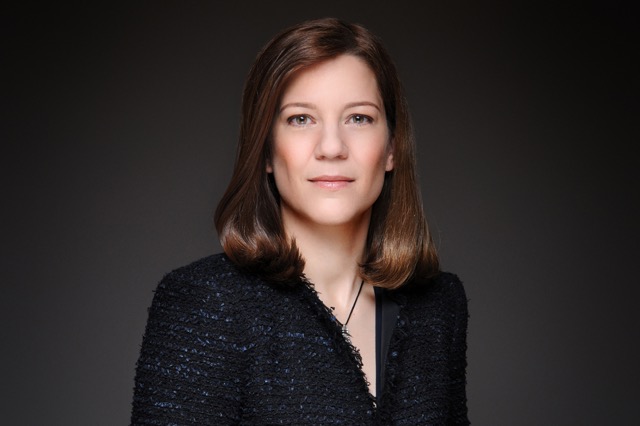1. Who are you?
I am Dorothee Fuhrmann, COO of Prophis Technologies.
2. Which services do you sell and who are your competitors?
From the flood of internal and external data, Prophis identifies the key market, economic and risk developments that are likely to have the greatest impact on a particular portfolio and then facilitates deep data exploration, presenting results visually.
Prophis uses a proprietary data integration tool to capture complex linkages in a graph database and identify hidden transmission mechanisms in financial data. Our analytics continuously monitor the movements in countless financial indicators and estimate their impact on the performance of the specific portfolio. Our award winning front-end visualizes and prioritizes these developments in order of importance and enables users to explore them in greater detail.
3. How did you get your startup idea and how did you finance your startup?
Our founder, Charles Pardue, and I both worked extensively with banks and official institutions during the financial markets and sovereign crisis. We saw first hand the difficulties financial institutions faced to create a unified view of their exposures across the enterprise, both direct and indirect, and deliver these to decision makers and regulators in a timely and easily comprehensible manner. Prophis was founded to address these issues.
We have since expanded the functionality of our platform to also monitor the countless financial indicators, estimate the impact of changes on a specific portfolio and alerts users to the most important developments.
Prophis is cash flow positive and self-funded to date. In order to accelerate further expansion of functionality across our software platform, we are planning to start a capital raise in the autumn.
4. What were the biggest challenges in starting?
Early on we knew that we wanted to create a product that enables decision makers to focus on those exposures that are likely to have the greatest potential impact on the performance of the firm or portfolio. We also felt strongly that information and insights should be communicated in a compact and engaging way.
However, as a small firm, we knew that we first had to find an easy way to import large amounts of data from many different sources into our system, avoiding many of the pitfalls of existing ETL (Extract-Transform-Load) solutions. Our development team has focused extensively on this point and over the past 18 months has created a visual data integration tool that enables quick loading and a straightforward way to follow data lineage.
More generally though, creating enterprise class software is time consuming and complex. It requires a clear vision of a significant product as well as foresight and planning.
5. What areas within FinTech do you personally find most interesting and why?
The development in graph databases over the last few years has been fascinating. They leave behind the old paradigm of locking data into rows and tables and instead finally allow us to model the relationships and influences in the world around us much more accurately with all the complexity, networks, connections and influences.
Graphs are used in social networks like Facebook to map and analyze the relationships between people. Law enforcement uses graphs to track down terrorists and identify fraud rings. The relationships within financial markets are no less complex: Assets, markets and economic factors are full of relationships, influences, correlations and causation, which can change over time and, at times, are hard to detect.
We believe that in 5-10 years the use of graph databases to model financial markets will be commonplace.
6. What opportunities do you see for FinTech startups in Continental Europe, and how can we help to accelerate it?
We see a wealth of opportunities for young FinTech companies in Continental Europe given the existence of multiple financial centers, each with its own focus and ecosystem.
While large firms tend to build most of their solutions in-house, many mid-size and smaller players are subject to the same regulatory and stakeholder pressure but will not have the same resources to build tools to address these. As a result, there is a greater willingness to establish relationships with external firms, including smaller ones like Prophis.
The more opportunities there are for FinTech start-ups to collaborate with financial institutions on actual challenges faced by the larger players the more meaningful the output from the emerging players will be.
7. What tip would you like to give FinTech entrepreneurs?
Speaking for the enterprise space that we are operating in, it’s very helpful to connect with the vibrant FinTech community around you and leverage their contacts and insights to build relationships with potential customers early on. Joining the ecosystem of entrepreneurs, accelerators, financial institutions, FinTech industry groups and policy makers opens up a wide set of opportunities to accelerate the growth of your firm.

